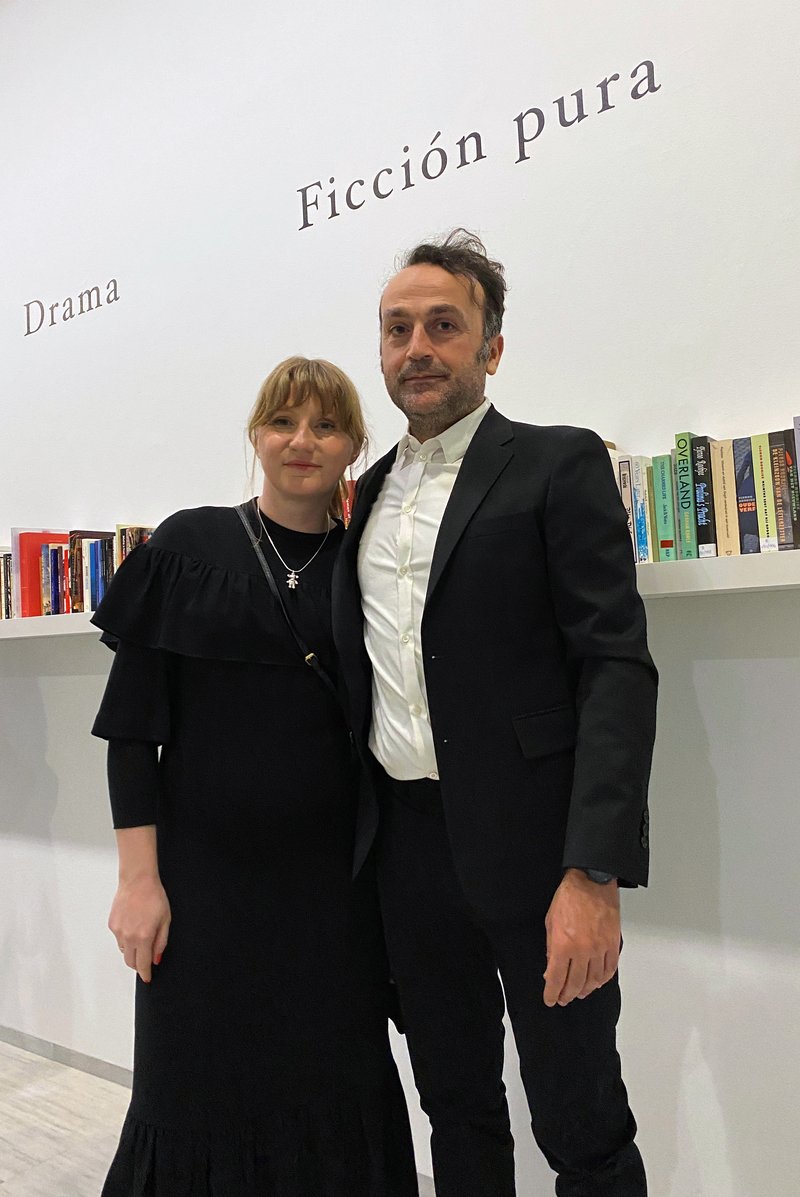"The content of an artist's novel resides largely in the process of creation, rather than in the text that is printed on its pages"

"Since 2011, the basis of our project has been the creation of a bibliography and a collection of artists' novels. So far, we have identified 608 titles. This collection constitutes the physical evidence that the artist’s novel is not a concept we came up with, but a material practice that artists have been carrying out for decades. From the beginning, the Museum of Contemporary Art in Antwerp (M HKA) has been supporting our project by acquiring the collection."
"We reserve the term 'artist's novel' for those instances in which artists employ their novel as a medium in the visual arts. So that, for example, they create a project where there is installation, there is performance, and there is a novel. The artist's novel is thus inscribed in an artistic discourse, rather than literary."
"The artist’s novel has been long obliterated from critical discourse, even though its practice has been a reality traceable decades ago. No art critics, no art theoreticians, no art historians, no curators have ever paid attention to this mode of artistic production."
"The content of an artist's novel resides largely in the process of creation, rather than in the text that is printed on its pages. The emphasis is on writing rather than the text per se. In this performative act of writing, the way the text is produced through the artistic process is as important as the text itself, to the point that an awareness of such process becomes constitutive of the reading experience."
Mobile, Virtual, Ephemeral: Collections of the Future?
In the times of museums being burned down because of war or put at risk because of climate disaster effects – what is a meaning of a public art collection? Could we imagine a different definition of collecting, an alternative circulation of objects, or an art museum without art objects? What if museums start collecting narratives or if the collection is co-owned by the local or international communities? Asking such questions and speculating on possible answers seems to be inevitable on the threshold of profound changes in the surrounding world and at the same time of changes awaiting museums of modern and contemporary art.
The upcoming CIMAM webinar will go a step further by taking a look at four different and radical approaches to the idea and practice of possible museums’ collections. The curators of the four diverse initiatives will share their experience: on virtual museum hosting international collections of Roma art (Timea Junghaus, Executive Director of the European Roma Institute for Arts and Culture (ERIAC) will speak on behalf of RomaMoMA), on mobility and establishing a relationship with local communities (Sofia Dourron from Museo La Ene in Buenos Aires), on co-owning the collection of artists’ novels developed by M HKA (Joanna Zielinska and David Maroto from The Book Lovers collective) and on managing artistic heritage and collections in times of war by Piotr Rypson, Adjunct Professor at New Media Department, Polish-Japanese Academy of Computer Technology; Curator at the Jewish Historical Institute and Chair of ICOM Poland.
Panelists:
- Sofia Dourron, Independent Curator and former director of Museo La Ene, Buenos Aires, Argentina.
- Timea Junghaus, Executive Director of the European Roma Institute for Arts and Culture (ERIAC), on behalf of RomaMoMA.
- The Book Lovers Collective (Joanna Zielinska & David Maroto) based in Antpern, Beligum.
- Piotr Rypson, Adjunct Professor at New Media Department, Polish-Japanese Academy of Computer Technology. Curator at the Jewish Historical Institute, and Chair of ICOM Poland.
Moderated by CIMAM Board Members:
- Agustín Pérez Rubio, Independent Curator, Madrid, Spain
- Malgorzata Ludwisiak, Chief Curator, Department of Modern Art, National Museum in Gdansk, Poland.
About CIMAM’s Rapid Response Webinars
Started in 2020, CIMAM has taken the new virtual scenario as an opportunity to launch a series of online activities exclusively for our community to, now more than ever, reinforce the sense of connectivity through online meetings in a peer to peer environment to share, learn, and be inspired by the experiences of other CIMAM professionals.
For 2022, we have prepared a series of online sessions that will take place, nearly every month of the year. The next ones are:
- Thursday 26 May: Museums and Well-being
- Thursday 30 June: Three views of digital transformation. Webinar proposed and designed by CIMAM member José-Carlos Mariategui.
- Thursday 5 July: Commemorative webinar for the 60th anniversary of CIMAM's birth.